Meet our interdisciplinary team
Search by

Aaron Courville
Co-investigator
Mila Quebec AI Institute, Université de Montréal
Aaron Courville is an Associate Professor in the Department of Computer Science and Operations Research (DIRO) at the Université de Montréal. He received his PhD from the Robotics Institute, Carnegie Mellon University. He is a founding member of Mila and a fellow of the CIFAR program on Learning in Machines and Brains. Together with Ian Goodfellow and Yoshua Bengio, he co-wrote the seminal textbook on Deep Learning. His current research interests focus on the development of Deep Learning models and methods. He is particularly interested in the study of systematic generalization within neural networks, but he is also interested in deep generative model and multimodal ML with applications such as computer vision and natural language processing. Aaron holds a CIFAR Canadian AI chair and his research has been supported by Microsoft Research, Hitachi, Samsung and a Google Focussed Research Award.
Aaron Courville is Assoc. Prof. Computer Science and Operations Research at UdM and Mila CIFAR AI Chair, and co-wrote (with Bengio) the seminal textbook on DL. He will contribute his knowledge of systematic generalization within neural networks, deep generative models and multimodal ML to research challenges such as natural language processing (NLP).
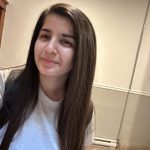
Amarta Lohana
HQ, Web Developer
Concordia University
[Master’s in Applied Computer Science]
Amarta is a Full Stack Developer. With a strong foundation in both front-end and back-end technologies, she is dedicated to creating seamless user experiences and robust applications. Her academic journey fuels her passion for innovative software solutions and highlights her commitment to advancing the field of computer science. Amarta’s current projects focus on integrating emerging technologies with practical applications, exploring the impact of artificial intelligence on software development. She aspires to contribute to the evolution of tech through her work and research.

Amethyst First Rider
Collaborator
Iinii Initiative
Amethyst First Rider is a member of the Kainai Nation, Blackfoot Confederacy,Alberta, Canada. She is a leader in the performing arts community for more that 20 years, producing and directing plays depicting Aboriginal stories and culture. Her experience in the arts has included dance productions, consulting for the University of California, Berkeley’s planetarium, as well as narration and production in the National Film Board’s documentary: Kainayssini Imanistaiswa,The People Go On. She is central to the development and success of The Buffalo: A Treaty of Cooperation, Renewal and Restoration signed by over 30 First Nations and Tribes in Canada and the USA. It is the biggest modern Treaty amongst First Nations.

Anna Kalakutskaya
Finance Manager, HQ
Concordia University
Anna is a Finance Manager at the Obx Lab and Abundant Intelligences. She holds a Diploma in Business Administration from John Molson School of Business and Master’s Degree in Economics. With more than a decade of experience in project management and operations within creative industries, Anna has consistently excelled in high-pressure environments. She was overseeing the financial aspects of various international film and animation projects, and managing complex budgets and timelines. At Obx Lab, Anna’s responsibilities include managing budgets for Abundant Intelligences to ensure the financial success of these projects and provide regular reporting to stakeholders.
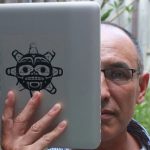
Archer Pechawis
Co-investigator
York University
Performance artist, new media artist, filmmaker, writer, curator and educator Archer Pechawis was born in Alert Bay, BC in 1963. He has been a practicing artist since 1984 with particular interest in the intersection of Plains Cree culture and digital technology, merging “traditional” objects such as hand drums with digital video and audio sampling. His work has been exhibited across Canada and in Paris France, and featured in publications such as Fuse Magazine and Canadian Theatre Review. Archer has been the recipient of many Canada Council, British Columbia and Ontario Arts Council awards, and won the Best New Media Award at the 2007 imagineNATIVE Film + Media Arts Festival and Best Experimental Short at imagineNATIVE in 2009.
Archer works extensively with Native youth as part of his art practice, teaching performance and digital media for various organizations and in the public school system. Of Cree and European ancestry, he is a member of Mistawasis First Nation, Saskatchewan.
Archer Pechawis (Cree) is a multimedia performance artist who integrates computational methods into traditional Indigenous performance. A York U Asst. Prof, he has been a long-time advocate for building capacity in digital technology with Indigenous youth. He will contribute to the theoretical and practical development of Indigenous epistemologies within computational contexts.

Ashley Cordes
Co-investigator
University of Oregon
Ashley Cordes is an Assistant Professor of Indigenous Studies at the University of Oregon and citizen of the Coquille Nation. Her research lies at the intersection of Indigenous media, critical/cultural studies, environmental storytelling, and community-based projects. Her recent work in these areas has been published in journals such as Cultural Studies; Critical Methodologies, Journal of International and Intercultural Communication, and Feminist Media Studies.
Ashley Cordes brings her expertise in Indigenous digital media, alternative currencies including cryptocurrency, and computational support for Indigenous governance models.
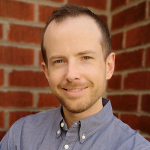
Blake Richards
Co-investigator
McGill University, Mila Quebec AI Institute
Blake Richards is an Associate Professor in the School of Computer Science and Montreal Neurological Institute at McGill University and a Core Faculty Member at Mila. Richards’ research is at the intersection of neuroscience and AI. His laboratory investigates universal principles of intelligence that apply to both natural and artificial agents. He has received several awards for his work, including the NSERC Arthur B. McDonald Fellowship in 2022, the Canadian Association for Neuroscience Young Investigator Award in 2019, and a CIFAR Canada AI Chair in 2018. Richards was a Banting Postdoctoral Fellow at SickKids Hospital from 2011 to 2013. He obtained his PhD in neuroscience from the University of Oxford in 2010 and his BSc in cognitive science and AI from the University of Toronto in 2004.
He will contribute his expertise in integrating neuroscience with artificial intelligence, memory consolidation and neural plasticity, and computational models of visual processing.

Bryan Kamaoli Kuwada
Co-investigator
University of Hawai’i Manoa
Bryan Kamaoli Kuwada (Kanaka Maoli) is Asst. Prof. at UH’s Kamakakūokalani Center for Hawaiian Studies, specializing in Hawaiian language translation and storytelling practices. He is an editor and author who explores Indigenous Futurism through fiction, poetry, photography, essays and scholarly publications. He wrote “We Live in the Future. Come Join Us.”, a seminal meditation on how Hawaiian ancestral practices enable abundant futures. Much of his research is focused on the nineteenth-century Hawaiian-language newspapers, a massive archive of Indigenous-authored writing that encompasses daily events to shipping notices to meditations on sovereignty to stories both traditional and contemporary. His work also focuses on Hawaiian and Indigenous digital media as a researcher, creator, and teacher of it. In 2017 and 2018, he helped put on intensive three-week workshops on telling traditional mo’olelo (stories/accounts/histories) through video games, through a strong partnership between Kanaeokana, a network of Native Hawaiian schools and organizations, AbTec, and the Initiative for Indigenous Futures. He also teaches courses on digital media and Hawaiian/Indigenous Futurisms.
Bryan Kamoli Kuwada will contribute expertise on how Hawaiian ancestral practices enable abundant futures, as exemplified in his seminal “We Live in the Future. Come Join Us.” essay.
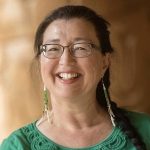
Caroline Running Wolf
Collaborator
Buffalo Tongue Inc.
Caroline Running Wolf, née Old Coyote, is an Apsáalooke (Crow) Media Activist dedicated to supporting Indigenous language and cultural vitality. She was raised in USA, Canada, and Germany. Caroline’s PhD research partners with Kwakwaka’wakw communities and explores potential applications of immersive technologies (AR/VR/XR) and artificial intelligence to effectively enhance Indigenous language and culture reclamation. She is also passionate about Indigenous Data Sovereignty and AI ethics.
Caroline Running Wolf (Apsáalooke) is the co-founder of Buffalo Tongue, a nonprofit that explores virtual and augmented reality experiences for Indigenous culture. She will contribute expertise in building open source software for preserving Indigenous culture and languages.

Ceyda Yolgörmez
HQ, Postdoctoral Researcher
Concordia University
Ceyda Yolgormez is a Postdoc at the Indigenous Futures Research Cluster, working in the Abundant Intelligences Research Program. Her PhD work brought together social theory and interactive technologies, such as large machine learning models or social robots, to consider how our conceptions of the social are changing. Her PhD dissertation proposes a framework for a sociology of machines that reimagines human-machine relations. Her research looks at playful and creative engagements with machines as a site to explore and experiment with human machine socialities, and is interested in methodologies that reveal and trouble the common-sensical way in which we understand such relations.
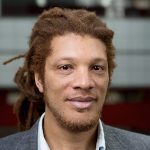
D. Fox Harrell
Co-investigator
Massachusets Institute of Technology (MIT)
D. Fox Harrell, Ph.D., is Professor of Digital Media & Artificial Intelligence in the Comparative Media Studies Program and Computer Science and Artificial Intelligence Laboratory (CSAIL) at MIT. He is the director of the MIT Center for Advanced Virtuality. His research explores the relationship between imagination and computation and involves inventing new forms of VR, computational narrative, videogaming for social impact, and related digital media forms. The National Science Foundation has recognized Harrell with an NSF CAREER Award for his project “Computing for Advanced Identity Representation.” Dr. Harrell holds a Ph.D. in Computer Science and Cognitive Science from the University of California, San Diego. His other degrees include a Master’s degree in Interactive Telecommunication from New York University’s Tisch School of the Arts, and a B.S. in Logic and Computation and B.F.A. in Art (electronic and time-based media) from Carnegie Mellon University – each with highest honors. He has worked as an interactive television producer and as a game designer. His book Phantasmal Media: An Approach to Imagination, Computation, and Expression was published by the MIT Press (2013).
D. Fox Harrell researches the relationship between imagination, identity, and computation at MIT. He is dual-appointed to Computer Science and Comparative Media Studies, leads the Centre for Advanced Virtuality, and is former lead of the Computer Science and Artificial Intelligence laboratory. He will contribute to our understanding of how ‘all technological systems are cultural systems.

Donavan Kealoha
Collaborator
Purple Mai’a, Startup Capital Ventures
Donavan Kealoha (Kanaka Maoli) is co-founder of Purple Mai‘a Foundation as well as a Managing Director at Startup Capital Ventures. He specializes in identifying and supporting Hawaiian culturally-grounded technology innovations. The two will help develop instructional opportunities for educating Kanaka Māoli in AI, ML and data sovereignty practices.
He specializes in identifying and supporting Hawaiian culturally-grounded technology innovations. The two will help develop instructional opportunities for educating Kanaka Māoli in AI, ML and data sovereignty practices.

Eilif Muller
Co-investigator
Institut de Valorisation des Données (IVADO), Mila Quebec AI Institute, Université de Montréal
Eilif B. Muller is a neuroscientist and artificial intelligence researcher employing computational and mathematical approaches to study the biological and algorithmic mechanisms of learning in the mammalian neocortex. Dr. Muller obtained his BS.c. (2001) in mathematical physics from Simon Fraser University, and his MS.c. (2003) and Doctor of Natural Sciences (2007) in physics with a focus on computational neuroscience from Ruprecht Karl University of Heidelberg, Germany’s oldest university. Dr. Muller undertook his post-doctoral work (2007-2010) in the Laboratory for Computational Neuroscience with Prof. Wulfram Gerstner at EPFL, Switzerland, focusing on network dynamics, simulation technology and plasticity. Subsequently, he led (2011-2019) the team of researchers at the Blue Brain Project, EPFL, Switzerland who pioneered in silico neuroscience, a new era of data-driven brain tissue simulation. In 2015, Dr. Muller and colleagues published their landmark team-science study “Reconstruction and Simulation of Neocortical Microcircuitry” in the journal Cell, describing “the most complete simulation of a piece of excitable brain matter to date” according to Dr. Christof Koch (president and CSO of the Allen Institute for Brain Science). The approach enabled Dr. Muller and his team to make significant contributions to our understanding of the structure, dynamics and plasticity of the neocortex, resulting in publications in top journals such as Nature Neuroscience, Nature Communications, and Cerebral Cortex. In 2019, Dr. Muller moved to Montréal, attracted by the thriving Neuro-AI research community, initially as a senior researcher at Element AI, prior to his appointment at the Université de Montréal and the CHU Sainte-Justine to launch the Architectures of Biological Learning Lab (ABL-Lab).
Eilif B. Muller is a neuroscientist and artificial intelligence researcher employing computational and mathematical approaches to study the biological and algorithmic mechanisms of learning in the mammalian neocortex. He is IVADO Assistant Research Professor at UdeM in the Department of Neuroscience, a Canada CIFAR AI Chair at Mila, and appointed to the CHU Sainte-Justine Research Center. He will contribute his expertise in understanding learning in biological and artificial systems.

Eliane Ubalijoro
Co-investigator
Concordia University
Éliane Ubalijoro, PhD, is the Executive Director of Sustainability in the Digital Age and the Global Hub Director in Canada for Future Earth. Her decades of experience span academia, science-policy and the non-profit and international development sectors. She is a Professor of Practice for Public-Private Sector Partnerships at McGill University’s Institute for the Study of International Development. Eliane is a member of the Impact Advisory Board of the Global Alliance for a Sustainable Planet. She is a member of Rwanda’s National Science and Technology Council and has been a member of the Presidential Advisory Council for Rwandan President Paul Kagame since its inception in September 2007. She is a member of the Expert Consultation Group on the Post COVID-19 Implications on Collaborative Governance of Genomics Research, Innovation, and Genetic Diversity. Éliane is a member of the African Development Bank’s Expert Global Community of Practice on COVID-19 Response Strategies in Africa. She is a member of the Capitals Coalition Supervisory Board. Eliane is a member of the Advisory Board of the Earth Leadership Program. She is a member of the Advisory Boards of ShEquity and Orango Investment Corporation. Eliane is on the boards of Genome Canada and the Crop Trust.
As the Executive Director of the Future Earth – Montreal Hub, she will contribute expertise on how locally-grounded science and technology research can be translated into effective governing and funding policies.

Fenwick McKelvey
Co-investigator
Concordia University, Institut de Valorisation des Données (IVADO)
Fenwick McKelvey is an Associate Professor in Information and Communication Technology Policy in the Department of Communication Studies at Concordia University. He is co-director of the Applied AI Institute and leads Machine Agencies at the Milieux Institute. He studies digital politics and policy. He is the author of Internet Daemons: Digital Communications Possessed (University of Minnesota Press, 2018) winner of the 2019 Gertrude J. Robinson Book Award. He is co-author of The Permanent Campaign: New Media, New Politics (Peter Lang, 2012) with Greg Elmer and Ganaele Langlois.
Fenwick McKelvey is an Associate Professor in the Department of Communication Studies at Concordia University. He studies digital politics and policy, appearing frequently as an expert commentator in the media and intervening in media regulatory hearings. He is the author of Internet Daemons (University of Minnesota Press, 2018), winner of the 2019 Gertrude J. Robinson Book Award. He is a member of the Educational Review Committee of the Walrus Magazine.
McKelvey is Assoc. Prof. Communication Studies and Co-director, Concordia Institute for Applied AI, and Director of the Algorithmic Media Observatory. He contributes expertise in digital infrastructures, algorithms, bots, and artificial intelligence in relation to Internet policy and governance.

Graham Hingangaroa Smith
Collaborator
Massey University

Guillaume Dumas
Co-investigator
Institut de Valorisation des Données (IVADO), Université de Montréal
Guillaume Dumas is an Associate Professor of Computational Psychiatry in the Faculty of Medicine at the Université de Montréal, and the Principal Investigator of the Precision Psychiatry and Social Physiology laboratory at the CHU Sainte-Justine Research Center. He holds the IVADO professorship for “AI in Mental Health”, and the FRQS J1 in “AI and Digital Health”.
He held a previous appointment as a permanent researcher in Neuroscience and Computational Biology at the Institut Pasteur (Paris, France). Before that, he was a postdoctoral fellow at the Center for Complex Systems and Brain Sciences (FAU, USA). He holds an engineering degree in advanced engineering and computer science (École Centrale Paris), two MSc degrees (theoretical physics, Paris-Saclay University; cognitive science, ENS/EHESS/Paris 5), and a PhD in cognitive neuroscience (Sorbonne University).
His research aims at cross-fertilizing AI/ML, cognitive neuroscience, and digital medicine through an interdisciplinary program with two main axes:
— AI/ML for Mental Health, creating new algorithms to investigate the development of human cognitive architecture and to deliver personalized medicine in neuropsychiatry using data from genomes to smartphones.
— Social Neuroscience for AI/ML, translating basic brain research and dynamical systems formalism into neurocomputational and machine learning hybrid models (NeuroML) and machines with social learning ability (Social NeuroAI & HMI).
Dr Dumas has co-created the first graduate course in computational medicine at Université de Montréal. He also participates in numerous projects at the interface between science and society, from raising awareness about altered states of consciousness (co-founder of Alius Research, 2007) and open science (co-founder of HackYourResearch, 2012) to advising governments about AI (expert for the two French AI national strategic plans) and fighting for cognitive freedom (twice invited expert at the United Nations Human Rights Council).
He will contribute his expertise in cross-fertilizing AI/ML, cognitive neuroscience, and digital medicine to explore AI for Mental Health, and Social Neuroscience for AI.

Hazel Dreslinski
HQ
Concordia University
Hazel Dreslinski works as the Research Activities Coordinator for AbInt HQ, and is currently pursuing an undergraduate degree in music composition at Concordia University. A white-settler of Polish descent, they grew up just outside Nogojiwanong/Peterborough, ON and attended Trent University to study culture and communications before relocating to Tiohtià:ke/Montreal in 2023. They are particularly interested in exploring the diverse roles of rhythm in various cultural milieux.
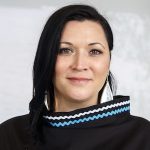
Heather Igliorte
Co-investigator
University of Victoria
Heather Igloliorte (Art History, Museum Studies and Curatorial Practice; Nunatsiavut) is the Director of the Inuit Futures in Arts Leadership: The Pilimmaksarniq/ Pijariuqsarniq Project. She began this project because she wanted to see more Inuit in decision-making roles in the arts.
Heather holds the Tier 1 University Research Chair in Circumpolar Indigenous Arts at Concordia University, is an associate professor in the Department of Art History, and co-directs the Indigenous Futures Cluster of the Milieux Institute for Arts, Culture and Technology with Professor Jason Edward Lewis.
Heather has been a curator for fifteen years, and currently has three exhibitions touring nationally and internationally; she and three other Inuit are guest curators of the inaugural exhibition of the new Inuit Art Centre, INUA, opening at the Winnipeg Art Gallery in 2020. Heather publishes frequently; she has co-edited special issues of journals PUBLIC 54: Indigenous Art: New Media and the Digital (2016) and RACAR: Continuities Between Eras: Indigenous arts (2017), and her essay “Curating Inuit Qaujimajatuqangit: Inuit Knowledge in the Qallunaat Art Museum,” was awarded the 2017 Distinguished Article of the Year from Art Journal. At Concordia, Heather serves as the Special Advisor to the Provost on Advancing Indigenous Knowledges, and in this role contributes to the efforts of the university Indigenous Directions Leadership Group.
She is also the President of the Board of Directors of the Inuit Art Foundation, currently serves as the Co-Chair of the Indigenous Advisory Circle for the Winnipeg Art Gallery, and serves on the Board of Directors for the Native North American Art Studies Association, the Faculty Council of the Otsego Institute for Native American Art History at the Fenimore Art Museum in Cooperstown, New York, and the Nunavut Film Development Corporation, among others.
(Inuit) is the CURC (Tier 1) in Indigenous Circumpolar Arts and is the world’s leading scholar on Inuit art history. She directs the Inuit Futures in Arts Leadership SSHRC Partnership and co-directs the Indigenous Futures Research Centre. She will contribute her knowledge of Inuit epistemologies as well as Inuit researchers, students, and communities.
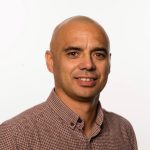
Hēmi Whaanga
Co-director, HQ
Dr. Hēmi Whaanga is a Professor and Head of Massey University’s School of Te Pūtahi-a-Toi – School of Māori Knowledge. He has worked as a project leader and researcher on a range of projects centred on the revitalization and protection of Māori language and knowledge (including Mātauranga Māori, digitization of indigenous knowledge, ICT and indigenous knowledge, ethics, traditional ecological knowledge, language revitalisation, Māori astronomy, and linguistics). He affiliates to Ngāti Kahungunu through his father, and Ngāi Tahu, Ngāti Mamoe and Waitaha through his mother.
Professor Whaanga is recognized as a leading scholar researching the revitalization, protection, distribution, and development of Māori knowledge and language, and incorporating mixed-method approaches, processes, and technologies to analyze, develop, present, and protect new and sacred knowledge in different linguistic, cultural, ethical, and digital contexts. His leadership in Māori digital initiatives earned him an invitation from the Science for Technological Innovation National Science Challenge to lead and develop the conceptual framework for ‘Ātea’, a multi-million-dollar spearhead project to conduct and share impactful research with experts in AI, VR and AR, NLP, ML, Indigenous and Māori data sovereignty, and digital repositories.
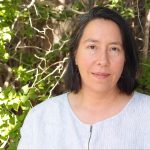
Holly Grimm
Associate Director – Emerging AI Technologies, HQ
Sustia LLC
Holly Grimm is a Diné machine learning engineer and creative technologist with 25+ years of development experience, originally from Denver and now based in Santa Fe, New Mexico. She has built technical systems with Indigenous communities and focuses on integrating Indigenous Knowledges with AI systems.

Jackie Cheung
Co-investigator
McGill University, Mila Quebec AI Institute
Jackie C. K. Cheung is a Canada CIFAR AI Chair at Mila and an associate professor in the School of Computer Science at McGill University.
Cheung conducts research in natural language processing, an area of artificial intelligence in which we build computational models of human languages such as English or French. His research group’s goal is to develop computational methods for understanding text and speech, in order to generate language that is fluent and appropriate to the context. In his lab, Cheung investigates statistical machine learning techniques for analyzing and making predictions about language. Several current projects include summarizing fiction, extracting events from text, and adapting language across genres.
Cheung is Assoc. Prof. at McGill’s School of Computer Sciences and Mila CIFAR AI Chair. He works in NLP, with the goal of developing computational methods for understanding text and speech. He will contribute his expertise in statistical ML techniques for analyzing and making predictions about language.

Jackson Leween TwoBears
Co-investigator
Western University
Dr. Jackson Two Bears is Canada Research Chair in Indigenous Arts Research and Technology and Associate Professor of Indigenous Art Studio and Media Arts at the University of Lethbridge. His research-creation activities focus on Indigenous land-based histories and embodied cultural knowledge, exploring creative uses of digital technologies to support the innovation, transmission, expression, and transformation of First Nations, Métis, and Inuit creative and cultural practices. His recent works focus on the impacts of changing technologies on contemporary Indigenous politics, culture, and society. He has worked extensively with/in Indigenous communities, notably the Blackfoot (Niitsitapi) community in Treaty 7 territory and in his own Haudenosaunee community of Six Nations. He is co-investigator on a large-scale research project called Mootookakio’ssin, working with Dr. Leroy Little Bear and several Blackfoot knowledge-keepers to create high-resolution 3D models of sacred Niitsitapi artifacts kept in museums around the world. Two Bears’ research lab, Onkwehonwe Research Environment (ORE), supports numerous research collaborations with the Blackfoot community and community organizations in Six Nations. ORE is currently involved in a project with an Ohsweken community organization, Thru the Red Door, and MIT researchers creating virtual environments for Haudenosaunee cultural practice and language revitalization based on longhouse/community protocols.

Jacqueline Rice
Co-investigator
University of Lethbridge
Dr. Rice is a Professor of Computer Science and is currently serving as Associate Vice President (Research) and Dean of the School of Graduate Studies and Postdoctoral Affairs.
Dr. Rice began her career at the University of Lethbridge in 2002 as an Assistant Professor in the Department of Mathematics and Computer Science. She has served in a variety of roles within her department and beyond. In 2014 Dr. Rice began the first of two terms as Associate Dean in the Faculty of Arts & Science. Her portfolios included recruitment, retention, timetabling, and community outreach. She is particularly proud of the role she played in creating the Global Citizenship Cohort, a program that brings first year students together to examine a particular theme from the perspective of three different disciplines. She believes strongly that incorporating this into all aspects of a student’s program creates a better learning opportunity for students in any program. In 2019 Dr. Rice was asked to take on the role of Interim Dean of the Faculty of Fine Arts, supporting that Faculty through the transition to the new Dean. In that time the number of Canada Research Chairs in Fine Arts at the University of Lethbridge grew from 0 to 2. This represented an ongoing change in the research culture in the Faculty, but was supported and facilitated in large part by Dr. Rice’s efforts. In 2020 Dr. Rice was selected to take on the newly combined role of AVP (Research) and Dean, School of Graduate Studies. Since that time she has emphasized communications and EDI, and is continually working on ways to remove barriers for students and to more clearly communicate not only with faculty, staff, and students but also with the community and public about the research and activities taking place at the University of Lethbridge.
Dr. Rice attended the University of Victoria and received her B.Sc. in 1993, her M.Sc. in 1995 and her Ph.D. in 2003. She has worked as a sessional instructor at the University of Victoria, an instructor at Camosun College in Victoria, a Programmer/Analyst for SHL Systemhouse, and a computer consultant at various times through-out her career. She has been a visiting researcher and/or adjunct professor at several other institutions, including the University of New Brunswick. Through-out her career Dr. Rice has been active in developing and participating in outreach programs to promote computer science and math knowledge to the community, and co-founded the LUMACS program (Life, U, Mathematics and Computer Science) in 2009. She is passionate about teaching and outreach, and in particular about finding ways to bring new perspectives to the use of technology.
Dr. Rice’s current research focuses on sociolinguistics in computer programming, where she is investigating how the use of language by different groups may impact quality, learning, communication, and other types of interaction around software development. Her previous research focused on synthesis of Boolean logic functions (logic synthesis), particularly reversible logic synthesis and testing, as well as representations and classification of Boolean functions including decision diagrams (DDs) and various types of mathematical transforms such as spectral transforms and the autocorrelation transform. She made this significant change after being involved in discussions with colleagues in the fields of linguistics; however it resulted from a decade or more of asking questions about why women and other underrepresented groups continue to be underrepresented in the use and study of technology, including Computer Science and Engineering.

Jason Edward Lewis
Principal Investigator
Concordia University
Jason Edward Lewis is a digital media theorist, poet, and software designer. He founded Obx Laboratory for Experimental Media, where he conducts research/creation projects exploring computation as a creative and cultural material. Lewis is deeply committed to developing intriguing new forms of expression by working on conceptual, critical, creative and technical levels simultaneously. He is the University Research Chair in Computational Media and the Indigenous Future Imaginary as well Professor of Computation Arts at Concordia University. Lewis was born and raised in northern California, and currently lives in Montreal.

Jason Leigh
Co-investigator
University of Hawai’i Manoa
Jason Leigh is the Director of LAVA: the Laboratory for Advanced Visualization & applications, Co-Director of the Hawaii Data Science Institute, Director of Create(x) at University of Hawaii at West Oahu, and Professor of Information & Computer Sciences at the University of Hawai‘i at Mānoa.
He is also Director Emeritus of the Electronic Visualization Lab and the Software Technologies Research Center at the University of Illinois at Chicago, where he was previously Professor of Computer Science and Affiliated Professor of Communications.
In addition he was a Fellow of the Institute for Health Research and Policy at the University of Illinois at Chicago, and has held research appointments at Argonne National Laboratory, and the National Center for Supercomputing Applications.
His research expertise includes: Big data visualization; virtual reality; high performance networking; and video game design.
He is co-inventor of the CAVE2 Hybrid Reality Environment, and SAGE: Scalable Amplified Group Environment software, which is the most widely used platform for information-intensive collaboration.
In 2010 he initiated a new multi-disciplinary area of research called Human Augmentics – which refers to the study of technologies for expanding the capabilities and characteristics of humans.
His research has also received numerous press from News media including: the AP News, New York Times, Popular Science’s Future Of, Nova ScienceNow, NSF Science Now, PBS, and Forbes.
Leigh also teaches classes in Software Design, Virtual Reality, Data Visualization and Video Game Design. In 2010 his video game design class enabled the University of Illinois at Chicago to be ranked among the top 50 video game programs in US and Canada.
Jason Leigh explores the intersections between big data visualization, virtual reality, and high-performance networked computing. A UH computer scientist, he founded LAVA: Laboratory for Advanced Visualization and Applications and Create(x), a lab exploring how to harness advanced computational technology to advance Hawaiian cultural practices. He will contribute to harnessing ancestral knowledge-driven AI for immersive visualization.

Jerwin Cabañeros
HQ
Jerwin Cabañeros is an undergraduate Computer Science student from the Philippines. He serves as the multimedia storyteller and video producer for Abundant Intelligences. Drawing from his deep passion for cinema and painting, he aims to craft films and games that are inspired by his diasporic experience

Johnson Witehira
Co-investigator, Collaborator
Indigenous Design and Innovation Aotearoa
Dr. Johnson Witehira is recognized as an expert on Māori design. His practice focuses on how customary Māori knowledge and ways of thinking can be applied in contemporary settings. His writings on Māori design have been published in world-leading design journals and books including; Visible Language (University of Cincinnati), The Graphic Design Reader (Bloomsbury), Novum (Munich) and Monocle (London).
As a practising designer Witehira has worked with Māori tribal groups, community organizations and Government agencies to instigate design solutions that effect positive change in people, practice and place. Within academia Witehira’s research focuses on decolonizing design education. He is at the forefront of developing bi-cultural and Māori responses to teaching design.
As an artist Witehira’s practice combines three areas of interest; technology, identity and post-colonial theory. His digitally-focused artworks have been shown globally through a number of exhibitions, the most prominent being his Toi Māori x Times Square project which was displayed simultaneously on 36 screens in Times Square, New York.
Co-founded Indigenous Design and Innovation Aotearoa. He will contribute his expertise in grounding design practice in Māori traditional knowledge and using speculative design practices to imagine alternative Māori futures.
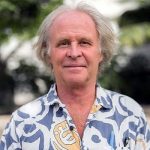
Jonathan Deenik
Collaborator
University of Hawai’i Manoa
Jonathan Deenik received his BA in History and Art History (College of Wooster) and then joined the Peace Corps where is served as a teacher and teacher trainer in the forest of southern Cameroon (’85-’87) and remote central Nepal (’87-’91). He came to Hawaii in 1992 and completed his MS and PhD degrees at Manoa in Soil Science. He joined the Dept of Tropical Plant and Soil Sciences in 2003 with a three-way split (extension, research and instruction). His work focuses on soil nutrient management and soil quality across the spectrum of tropical agroecosystems. He works with farmers throughout the Hawaiian Islands and Micronesia.

Julia Fortin
HQ, Studio Designer
Concordia University
Julia Fortin (she/her) is an MA student in art history at Concordia University and a white settler based in Tiohtià:ke/Mooniyang/Montréal. Julia holds a BA in Art History from McGill University (2023). Her current research examines how the images created in response to the #NoDAPL movement relate to the concept of the future imaginary.

Kamuela Enos
Co-investigator
University of Hawai’i
Kamuela Enos (Kanaka Maoli) is founder of UH’s Office of Indigenous Innovation, which identifies, researches, and scales traditional practices for the benefit of Indigenous communities. The former director of social enterprise at MA‘O Organic Farms, he has extensive experience in revitalizing ancestral agricultural practices. He will contribute to the development of meaningful and co-generative collaboration with Indigenous communities around new technologies.
He will contribute to the development of meaningful and co-generative collaboration with Indigenous communities around new technologies.

Karim Jerbi
Collaborator
Karim Jerbi is a professor at the Psychology department of the University of Montreal. He is Canada Research Chair in Computational Neuroscience and Cognitive Neuroimaging and heads UNIQUE, the Quebec-wide Neuro-AI research center. He is also associate professor at Mila (the Quebec AI research institute). Dr Jerbi holds a PhD in Cognitive Neuroscience and Brain Imaging from the Pierre & Marie Curie University in Paris and a biomedical engineering degree from the University of Karlsruhe (Germany). His research lies at the crossroads between cognitive, computational and clinical neuroscience. The specific goal of the research conducted in his lab is (1) to elucidate the role of neural oscillations and large-scale neural communication in cognition (incl. decision-making, attention, consciousness, creativity), and (2) to investigate brain network alterations in psychiatric and neurological disorders. The multidisciplinary research conducted in his laboratory combines brain imaging techniques, such as magnetoencephalography (MEG), scalp- and intracranial electroencephalography (EEG) with advanced signal processing, modeling and data analytics including machine learning. Dr Jerbi also has a keen interest in the convergence between neuroscience, AI and art, as well as the promotion of justice in and outside science.
Karim Jerbi is CRC (Tier 2) in Computational Neuroscience and Cognitive Neuroimaging and Director of UNIQUE Neuro-AI Research Center at UdM. He will contribute expertise exploring the intersection between cognitive, computational, and clinical neuroscience, as well as how knowledge frameworks from different cultural contexts affect our understanding of intelligent action.

Kelsey Amos
Co-investigator
Purple Mai’a
Kelsey Amos is co-founder and Chief Operating Officer of Purple Maia Foundation, a nonprofit based in Honolulu, Hawaii, whose mission is to educate and empower the next generation of culturally grounded, community serving technology makers and problem solvers. Together with co-founders Donavan Kealoha and Olin Lagon, Kelsey has worked to grow Purple Maia from a startup nonprofit in 2013 to employing over 30 people in 2022, with major programs in youth coding and computer science education, technology workforce development, and entrepreneurship & design. Purple Maia is a Kanaka Maoli (Native Hawaiian) led nonprofit that serves primarily Native Hawaiian and Pacific Islander participants across all programs. Kelsey identifies as a settler born in Hawaii whose ancestors came from Japan, Scotland, Ireland, England, and France.
In 2021, Kelsey led the planning and implementation of the Coastal Biocultural Restoration workshop, a workshop funded by the NSF as part of its Convergence Accelerator competition. The workshop convened over 100 scientists, experts, and practitioners to share ideas and set priorities for Indigenous-led biocultural restoration of coastal areas and waterways.

Kendra Besanger
HQ, Manager, Partnership Operations
Kendra (she/her) is the Manager of Partner Operations with Abundant Intelligences where she aligns headquarters support with the needs of leadership, research clusters, and partners. For the past decade, she has built operational and funding strategies that have secured close to $20 million in funding for social purpose and educational organizations. She takes pride in contributing to spaces and systems that foster social connection, curiosity, and critical thinking. Kendra holds a Master’s Degree in Media Studies from Concordia University and an Executive Coaching Certification from Royal Roads University.
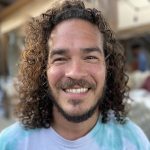
Keolu Fox
Co-investigator
University of California San Diego (UCSD)
Keolu Fox Ph.D., Kānaka Maoli (Native Hawaiian) is an assistant professor at University of California, San Diego, affiliated with the Department of Anthropology, the Global Health Program, the Halıcıoğlu Data Science Institute, the Climate Action Lab, and the Indigenous Futures Lab. He holds a Ph.D. in Genome Sciences from the University of Washington, Seattle (2016). Dr. Fox’s multi-disciplinary research interests include genome sequencing, genome engineering, computational biology, evolutionary genetics, paleogenetics, and Indigenizing biomedical research. His primary research focuses on questions of functionalizing genomics, testing theories of natural selection by editing genes and determining the functions of mutations.
Dr. Fox has published numerous articles on human genetics, biomedicine, ancient genomics, and Indigenous data sovereignty, most recently in the New England Journal of Medicine, Nature, and the Proceedings of the Royal Society B.
Dr. Fox is a recipient of grants from numerous organizations including the National Institutes of Health, the National Science Foundation, National Geographic, the American Association for Physical Anthropology, Emerson Collective, the Social Science Research Council and the Massachusetts Institute of Technology, SOLVE Initiative.
Fox (Kanaka Maoli) is Asst. Prof. at UC San Diego researching genome sequencing, genome engineering, computational biology, evolutionary genetics, and paleogenetics. Fox and Tsosie will contribute their expertise in establishing the IndigiData Indigenous data science workshops.
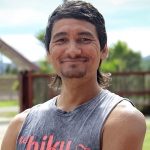
Keoni Mahelona
Collaborator
Te Hiku Media
Keoni Mahelona is the Chief Technology Officer at Te Hiku Media and a leading practitioner of Indigenous data sovereignty. Originally from Anahola on the island of Kauaʻi, Hawaiʻi, Keoni has been living and working in Te Hiku o Te Ika for over 10 years having first arrived in Aotearoa as a Fulbright Scholar. As a driving force behind the development of digital innovation projects that seek to secure the future of te reo Māori and other indigenous languages, Keoni makes decisions every day to protect the sovereignty of Māori data, from the digital tools employed to advance projects, the storage of data and sharing data in appropriate and secure ways.
Mahelona works at THM building innovative Te Reo Māori speech recognition tools. They will contribute their experience building NLP technology from within a framework of strengthening Indigenous data sovereignty.

Kiera Ladner
Co-investigator
University of Manitoba
Kiera L. Ladner is Canada Research Chair in Miyo we’citowin, Indigenous Governance and Digital Sovereignties and Associate Professor in the Department of Political Studies at the University of Manitoba, and former Canada Research Chair in Indigenous Politics and Governance. Dr. Ladner’s publications include This is an Honour Song: Twenty Years Since the Blockades (ARP Books) co-edited with Leanne Simpson and Surviving Canada: Indigenous Peoples Celebrate 150 Years of Betrayal co-edited with Myra J. Tait.

Kimiora Whaanga
HQ, Studio Designer
Indigenous Design and Innovation Aotearoa

Krystal Tsosie
Co-investigator
Native BioData Consortium
Krystal Tsosie (Diné/Navajo Nation), PhD, MPH, MA, is an Indigenous geneticist-bioethicist and Assistant Professor in the School of Life Sciences at Arizona State University. As an advocate for Indigenous genomic data sovereignty, she co-founded the first US Indigenous-led biobank, a 501c3 nonprofit research institution called the Native BioData Consortium.
Her research can be encapsulated in two main foci: Indigenous population genetics and bioethics. In particular, she focuses on bioethical engagement of Indigenous communities in genomics and data science to build trust. As a whole, her interest is in integrating genomic and data approaches to assess Indigenous variation contributing to health inequities.
She began her research career at the laboratory bench, where she developed and patented a combined targeted ultrasound imaging and chemotherapeutic drug delivery device for treating early metastases in cancer. Upon seeing the disparities in emerging genomics technologies, she switched fields to genetic epidemiology, public health, and bioethics. Her first Master of Arts in Bioethics at Arizona State University focused on the cultural implications of genetics in Native American communities. She added biostatistical knowledge and computational programming in large genomics datasets during her second Master’s in Public Health (genetic epidemiology) at Vanderbilt University, where she studied disparities in uterine fibroids in African American women. She has co-led an ongoing longitudinal genetics study in a North Dakota Tribal community. This project serves as one of few examples of community-based participatory research involving genetics in an Indigenous tribal nation.
Her research and educational endeavors have received increasing national and international media attention as scientists worldwide are understanding the importance of equitable, community-based engagement models and the importance of Indigenous genomic data sovereignty. Her work has been covered by popular media outlets including PBS NOVA, The Washington Post, NPR, New York Times, The Atlantic, Forbes, and Boston Globe. She currently serves on the Government Policy and Advocacy Committee for the American Society of Human Genetics and two National Academy of Medicine Committees on Emerging Science, Technology, and Innovation and Engaging Scientists in Central Asia on Data Governance. She is a current Global Chair in ENRICH (Equity for Indigenous Research and Innovation Coordinating Hub), which focuses on enhancing Indigenous rights to develop, control, and govern Indigenous data and supports participation in STEM and in digitally‐enabled futures.
A human population geneticist, data scientist, and bioethicist, she advocates and employs community-engaged approaches to health disparities research in genomic and precision medicine as the co-founder of Native BioData Consortium, an Indigenous-led biological and data repository on Lakota lands.
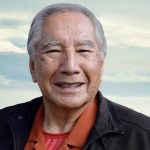
Leroy Little Bear
Co-investigator
University of Lethbridge
Leroy Little Bear (Blackfoot) is Professor Emeritus at the University of Lethbridge, founding member of Canada’s first Native American Studies Department, former Director of the Harvard University Native American Program, and recipient of the National Aboriginal Achievement Award for Education.
Little Bear is a founding member of Canada’s first Native American Studies Department, at the University of Lethbridge, where he remained as a researcher, faculty member and department chair until his official retirement in 1997.
In recent years Little Bear has continued his influential work as an advocate for First Nations education. From January 1998 to June 1999 he served as Director of the Harvard University Native American Program. Upon his return to Canada, he was instrumental in the creation of a Bachelor of Management in First Nations Governance at the University of Lethbridge – the only program of its kind in the country.
In the spring of 2003, Little Bear was awarded the prestigious National Aboriginal Achievement Award for Education, the highest honour bestowed by Canada’s First Nations community.
He has served as a consultant to local and national organizations including the Blood Tribe, Indian Association of Alberta and the Assembly of First Nations of Canada. His notable reputation has also earned him a place on numerous government commissions and boards including the Task Force on the Criminal Justice and Its Impact on the Indian and Métis Peoples of Alberta (1990-91). Little Bear’s legal advice is widely sought on such significant issues as land claims, treaties, and hunting and fishing rights.
Mr. Little Bear is the co-author of several books on self-government and Aboriginal rights, including “Pathways to Self Determination”, “Quest For Justice”, and “Governments in Conflict”. His credits also include a variety of influential articles such as, “A concept of Native Title”, which was cited in a Canadian Supreme Court decision.
He received an Honourary Doctor of Arts and Science degree from the University of Lethbridge, an Honourary Doctor of Laws degree from the University of Northern British Columbia, was recognized as an Eminent Scholar (Honourary) by the Blood Reserve and received an Urban Aboriginal Lifetime Achievement Award from the Aboriginal Council of Lethbridge.
Leroy was also inducted into the Alberta Order of Excellence in 2016.
Little Bear is Professor Emeritus at the Lethbridge U and former Director of Harvard’s Native American Program. He is one of the world’s foremost authorities on Indigenous epistemologies and the intersections between Indigenous and Western techno-scientific worldviews.
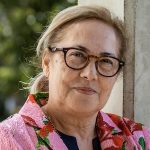
Linda Tuhiwai Smith
Co-investigator
Te Whare Wānanga o Awanuiārangi
Dr. Linda Tuhiwai Te Rina Smith (Fellow, Royal Society New Zealand) is Distinguished Professor at Te Whare Wānanga o Awanuiārangi. Her academic career is grounded in her love of teaching and research that makes a transformative difference in Māori, Indigenous, and diverse other communities. She was the founding Co-Director of New Zealand’s Māori Centre of Research Excellence Nga Pae o Te Māramatanga and implemented a national support programme to develop 500 Māori doctoral graduates within 5 years, which has exceeded its target by 200% and seen the first program graduates become leading researchers and directors of various centres of excellence. Previously, she was the Pro-Vice Chancellor Māori, Dean of the School of Māori and Pacific Development and Director of Te Kotahi Research Institute at the University of Waikato. Smith is the author of Decolonizing Methodologies, one of the seminal texts in Indigenous studies, decolonial studies, and research methodology. Smith’s research is trans-disciplinary with a recognized international reputation in Indigenous education, Indigenous health, and decolonizing research methodologies. She has served on several Cabinet-appointed high-level advisory boards and has considerable public sector governance experience. She has held various leadership roles in transdisciplinary projects based in strong community engagements since the late 1980s.
Linda Tuhiwai Smith (Māori) (CNZM) is author of Decolonizing Methodologies, which articulates a framework for Indigenous people to undertake research on their own terms and to the benefit of their communities. Distinguished Professor at Te Whare Wānanga o Awanuiārangi, her scholarly work inspired and sustains ongoing efforts to re-centre Māori and Indigenous knowledge practices within the academy and in relationship to community. She will contribute to the project’s understanding of how to integrate Indigenous and Western research and research-creation methodologies.

Manulani Meyer
Co-investigator
University of Hawai’i West Oahu
Manulani Aluli Meyer is the fifth daughter of Emma Aluli and Harry Meyer who grew up on the sands of Mokapu and Kailua beach on the island of O’ahu. The Aluli ohana is a large and diverse group of scholar-activists dedicated to Hawaiian education, justice, land reclamation, law, health, cultural revitalization, arts education, prison reform, food sovereignty, transformational economics, and music. Manu works in the field of indigenous epistemology and its role in world-wide awakening. Professor Aluli-Meyer obtained her doctorate in Philosophy of Education from Harvard (Ed.D. 1998). She is a world-wide keynote speaker, writer, and international evaluator of Indigenous PhDs. Her book: Ho’oulu: Our Time of Becoming, is in its third printing. Her background is in wilderness education, coaching, and experiential learning and she has been an Instructor for Outward Bound, a coach for Special Olympics, and a cheer-leader for the Hawaiian Charter School movement. Dr. Aluli Meyer has been an Associate Professor of Education at University of Hawai‘i at Hilo and spent five years in New Zealand as the lead designer/teacher for He Waka Hiringa, an innovative Masters in Applied Indigenous Knowledge degree at Te Wānanga o Aotearoa, the largest Māori university with 30,000+ students. Dr. Aluli-Meyer is currently the Konohiki for Kūlana o Kapolei (A Hawaiian Place of Learning at University of Hawai‘i–West O‘ahu).
manulani meyer has created seminal scholarship on Indigenous epistemologies, as exemplified in her book, Ho’oulu: Our Time of Becoming, and she serves as an evaluator of PhD programs in Indigenous research worldwide. She is currently the Konohiki – Kūlana o Kapolei at U of Hawai‘i (UH). She will contribute to the project’s understanding of how to integrate Indigenous and Western epistemologies.
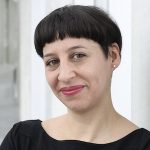
Maroussia Levesque
Collaborator
Harvard University
Maroussia is a doctoral candidate at Harvard Law School, a Senior Fellow at the Center for International Governance Innovation, and a member of the Indigenous Protocol and Artificial Intelligence working group. Building on previous work on AI and human rights at Global Affairs Canada (foreign affairs department), she currently researches AI governance, and co-leads a working group on the matter at Berkman Klein. Her academic and creative work has been featured in NeurIPS, Stem Cell Review and Reports, and ISEA. Maroussia previously worked for Quebec’s public inquiry commission on electronic surveillance and clerked for the Chief Justice at the Quebec Court of Appeal, and volunteered on gender-based violence and criminal matters in Haiti (Lawyers Without Borders) and on digital literacy in Brazil (Alternatives). She holds degrees from Harvard, McGill, and Concordia University.
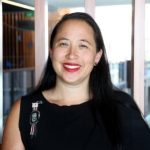
Melanie Cheung
Co-investigator
Cheung Consultancy
Melanie Cheung (Māori) is research director for Te Puna Ora o Mataatua. She brings expertise in neuroplasticity, cognitive processing, neuroplasticity-based therapeutics and Kaupapa Māori biomedical science.
Melanie Cheung brings expertise in neuroplasticity, cognitive processing, neuroplasticity-based therapeutics and Kaupapa Māori biomedical science.
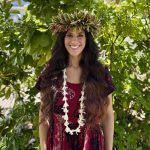
Melemaikalani Moniz
Postdoctoral Researcher
Dr. Melemaikalani “Mele” Moniz is a Kanaka ʻŌiwi born and raised under the malu of Ko’olaupoko on the windward side of O‘ahu, with family lines that come from Moku o Keawe, Nā Hono A‘o Pi‘ilani, and Moloka‘i nui a Hina. She earned a BA in English from Marist College, a JD from the Catholic University, an LLM in Environmental and Natural Resources Law from the University of Oregon, and an SJD in Indigenous Peoples Law and Policy from the University of Arizona. During her JD program, Mele assisted the Honorable Edward H. Kubo, Jr. in the First Circuit Court of Hawai‘i, clerked with the Family Law Unit of the Legal Aid Society, and completed an externship at the Hawai‘i Immigrant Justice Center. She also served as a First Amendment Fellow at the Freedom Forum (formerly the First Amendment Center) in Washington, D.C. After graduation, Mele clerked for the Honorable Joseph E. Cardoza and the Honorable Kelsey T. Kawano in the Second Circuit Court of Hawai‘i, worked as a Legislative Aide to Senator Laura Clint Acasio, and held a Teaching Fellowship at the University of Arizona. She subsequently served as a Trustee Aide to Trustee Dan Ahuna at the Office of Hawaiian Affairs. Mele is currently a Postdoctoral Researcher in Indigenous Innovation in Communities & Climate Readiness with Abundant Intelligences, an Indigenous-led program advancing Artificial Intelligence grounded in Indigenous knowledge systems.

Michael Runningwolf
Collaborator
McGill University, Mila Quebec AI Institute
Michael Runningwolf (Northern Cheyenne) is a ML engineer specializing in using AI to help revitalize low-resource Indigenous languages. He founded Indigenous in AI, an industry affinity group to support Indigenous people working in the field.
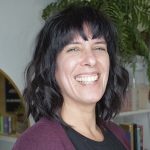
Michelle Lee Brown
Co-investigator
Michelle Lee Brown is a recent Eastman Fellow at Dartmouth College in their department of Native American and Indigenous Studies, and recently completed her PhD in the Indigenous Politics and Futures Studies programs in the Political Science Department at the University of Hawaiʻi at Mānoa. Her work articulates Indigenous political praxis and futures through digital SF; she is currently working on a VR project on water, eels, and relationality, and a comic based on multiple levels of impostor syndrome. More about her practice and praxis can be found at www.michelleleebrown.com
Euskalduna from Lapurdi (Biarritz/Miarritze Côte des Basques), she grew up on Wampanoag territories around Buzzards Bay and now lives on Umatilla, Cayuse, and Walla Walla lands and waters. She strives to uphold her relational commitments to these communities and is grateful to be working with Obx and IIF to imagine and build otherwise.
Her work concerns relational commitments to human and nonhuman kin, centering BIPOC feminist theory and praxis. She will contribute expertise in articulating Indigenous political praxis and futures through digital speculative fiction and technology design.
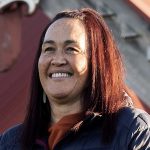
Nadia Jones
Coordinator South, HQ
Massey University
Research Project Manager with Te Pūtahi-a-Toi: School of Māori Knowledge, Massey University. Nadia brings vast knowledge and experience of executive assistance, leadership and administration, office management, event planning and management, iwi networking and project management. She has played key roles in the management of large scale events and conferences, and has worked alongside and with many iwi, external stakeholders and other tertiary providers in her various roles. Her interests are in research translation and tinana hauora through mirimiri and Ortho-bionomy.

Oiwi Parker Jones
Co-investigator
Oxford University
Dr. Oiwi Parker Jones leads the Neural Processing Lab (PNPL) in the Department of Engineering Science at the University of Oxford. His primary research interest is in the development of effective non-invasive Brain Computer Interfaces (BCIs) for people who cannot speak. This includes basic research on speech and language in the brain, and the development of powerful new deep learning methods for neural data.
When he has spare compute cycles, Oiwi also works on Automatic Speech Recognition for the Hawaiian language, which he grew up speaking as part of the Pūnana Leo O Hilo, Kula Kaiapuni O Keaukaha, and Nāwahīokalaniʻōpuʻu.
Oiwi completed a DPhil at the University of Oxford focused on Natural Language Processing (NLP) for low-resource languages. He further trained as a postdoc in Imaging Neuroscience at UCL and Oxford, and in Applied Artificial Intelligence in Oxford. Previously, he was a lecturer in Medicine at St Peter’s College, Oxford, and is currently Hugh Price Fellow in Computer Science at Jesus College, Oxford, and one of seven Principal Investigators at the Oxford Robotics Institute.

Paul Fournier
HQ, Sr. Strategist – Infrastructure
Concordia University
Paul Fournier is the Director of Digital Transformation at Concordia University in Montréal, blending creative and technical expertise. He holds a Bachelor’s in Fine Arts (Honours) and certifications in Change Management (Prosci), Project Management (PMP), User Experience Project Management (UX-PM), and IT Service Delivery (ITIL). With over twenty-three years in university education, Paul initially advanced high-tech infrastructure in arts, academic research, and library services. Currently, he champions organizational change and the integration of digital technologies, including AI, in the workplace.
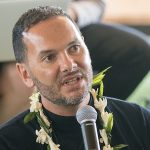
Peter-Lucas Jones
Collaborator
Te Hiku Media
Peter-Lucas Jones (Te Aupōuri, Ngāi Takoto, Ngāti Kahu) is the CEO of Te Hiku Media and an experienced governor in the Māori media ecosystem. He is currently the Chair of Te Whakaruruhau o ngā Reo Irirangi Māori, Deputy Chair of Whakaata Māori and Chairman of Te Rūnanga Nui o Te Aupōuri. As a trusted kaitiaki (guardian) of Māori data, Peter-Lucas negotiates the responsibility of protecting iwi (tribal) and Māori data while meeting the needs of funders and the expectations of iwi and hapū (sub-tribes). Peter-Lucas has terrestrial and digital broadcasting experience working with kaumātua (elders) and marae (sacred Māori meeting place) to record content and provide access to te reo ā-iwi (tribal language variation), tikanga ā-iwi (tribal cultural variation), kōrero tuku iho (oral traditions) and iwi history. He is an award winning Māori language radio broadcaster with a focus on political affairs and topical issues. This experience has seen the development of a Kaitiakitanga License for Te Hiku Media that provides a framework to guide the use of Māori data from a haukāinga (home people of marae) perspective. This data is now used by Te Hiku Media to develop NLP and NLU tools for te reo Māori.
(Māori) is the General Manager of Te Hiku Media (THM), Aotearoa, where he guides Māori language broadcasting, digital Māori language corpus/data governance and innovation projects.
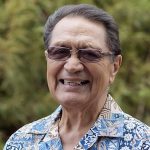
Pou Temara
Co-investigator
Te Whare Wānanga o Awanuiārangi
Pou Temara is Professor of reo and tikanga at the University of Waikato. He is a recognised authority on Māori customary practice and whaikōrero, having taught at Victoria University as a senior lecturer and at Te Whare Wānangao Awanuiārangi as associate professor and as head of the faculty of Mātauranga Māori. He is also one of three directors of Te Panekiretanga o te Reo, the Institute of Excellence in the Māori Language, where he teaches and researches whaikōrero, karanga, and tikanga. He was also a member of the Māori Advisory Committee, which produced essays for the Dictionary of New Zealand Biography and Ngā Tāngata Taumata Rau.
Professor Temara is a member of the Tūhoe Waikaremoana Māori Trust Board and is the chairperson of both Te Hui Ahurei a Tūhoe and the Repatriation Advisory Panel to Te Papa and has written many publications and essays on issues currently affecting Māori. His first book, Maungapōhatu, was released in 2008 through Huia Publishers. Professor Temara was appointed to the Waitangi Tribunal in 2008.
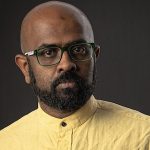
Prem Sooriyakumar
HQ, Sr. Strategist – Knowledge Mobilization
Concordia University
Prem Sooriyakumar, an Eelam Tamil from Sri Lanka, is a documentary filmmaker and Knowledge Broker at Concordia University. His journey as a refugee to Canada has shaped his dedication to inclusive storytelling and accessible academic knowledge.
Over the past decade, as part of his role at Concordia, has been supporting documentation and knowledge mobilization at ABTeC. Prem recently completed the long-form documentary “Past Future Forward: The Making of a Hawaiian Videogame,” for the Initiative of Indigenous Futures.

Rangi Matamua
Collaborator
Massey University

Renee Waiwiri
HQ, Studio Designer
Indigenous Design and Innovation Aotearoa

Sabrina Smith
Coordinator North, HQ
Concordia University
Sabrina Smith (she/her) is originally from Bdeóta Othúŋwe/Gakaabikaang/Minneapolis, Minnesota and is a white-settler of Irish and Scottish-Gaelic descent. Sabrina has a BA in Art History from Mount Holyoke College (2017) and an MA in Art History from Concordia University (2023). Her graduate thesis under Dr. John Povtin critically examined the exhibition, Le monde en tête (Lyon, 2019 and Montreal, 2022), and the Musée des Confluences’ curatorial politics and representation of Indigenous art history. Smith’s other works include a group exhibition, Confronting the Anthropocene: Theory, Activism, Art, exploring posthuman feminist phenomenology and the biotic and abiotic elements of ourselves. Sabrina joins the Abundant Intelligences program as Coordinator North, bringing her interest in phenomenology including AI phenomenology and the phenomenology of senses as bodily and cultural phenomena to the team.
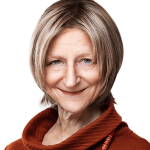
Sara Diamond
Co-investigator
OCAD University
Dr. Sara Diamond, President Emerita of OCAD University has led institutional transformation within arts, digital media/ICT, and post-secondary institutions for over 30 years. Diamond was President and Vice-Chancellor of OCAD University from 2005-2020, leading its transformation to full university status. She was founding director of the Banff New Media Institute (1995 — 2005). As a historian, media artist and computer scientist, Diamond brings a deep interest in the relationships of human practices, culture, and technologies and a profound commitment to equity and Indigenous rights. She has been co-PI on major research networks such as Am-I-Able (wearable technologies and IoT) and the Centre for Information Visualization and Data Driven Design. She has undertaken NSERC, SSHRC, Ontario Research Excellent Fund, Mitacs, and foundation funded research in data analytics and visualization, urban and transportation planning, public art, cultural analytics, and wearable technology to support seniors’ wellbeing. Current funded scholarship includes acting as co-PI for the iCity2.0 project (ORF-E), applying AI tools such as generative design to complete community planning (ORF-E, Mitacs); developing a Machine Learning qualitative analytics framework to understand the impact of screen media on audiences (Mitacs); creating mobile affective computing solutions to support mood analysis and mental health in the workplace (Mitacs); reassessing archives through visualization and metadata analysis (SSHRC), and ongoing considerations of human, animal and machine agency. True to her early training as a social historian she continues to write about the history of media arts and technologies.
Recognitions include the Order of Canada, Order of Ontario, Doctor of Science, honoris causa, Simon Fraser University, 2020; the 2020 Exceptional Women of Excellence from the Women’s Economic Forum and two New Media “Pioneer” awards. She is a Senior Fellow at the University of Toronto’s Massey College and Adjunct Professor at University College Dublin and UCLA. Diamond acted as a reviewer for the 2021 mid-term CFREF assessments and for the NFREF competition.
She is co-chair of Toronto’s ArtworxTO, the Year of Public Art and Toronto’s Nuit Blanche; is the chair for the Toronto Arts Foundation and of the new Baycrest Academy for Research and Education. Diamond is an Expert Panelist with the Canadian Centre for the Purpose of the Corporation and a Thought Leader with Lord Cultural Resources.
(OC OO RCSA), President Emerita OCAD University, has led collaborative efforts to strengthen equity and diversity and to support Indigenous cultures, research, and decolonization in the academy. She contributes expertise in data visualization and wearable technology, research-creation methodologies, and integration of Indigenous research methodologies into academic contexts.

Scott Benesiinaabandan
Co-investigator, Postdoctoral Researcher
University of Winnipeg
Scott Benesiinaabandan is an Anishinaabe from Obishkkokaang. Scott is an intermedia artist that currently works in experimental image making and sonic materials. Scott is currently resident in Montreal, where he has completed a MFA in photography. Scott’s current research interests are intersections of artificial-intelligence and Anishinaabemowin, Scott has completed international residencies at Parramatta Artist Studios in Australia, Context Gallery in Derry, North of Ireland, and University Lethbridge/Royal Institute of Technology iAIR residency, along with international collaborative projects in both the U.K and Ireland. Scott has completed residencies with Initiative for Indigenous Futures and AbTec in Montreal.
Benesiinaabandan has been awarded grants from the Canada Council for the Arts, Manitoba Arts Council, Winnipeg Arts Council and Conseil des arts des lettre du Quebec. His work can be found in a number of private, provincial and national collections.
Benesiinaabandan has taken part in several notable exhibitions across Canada and internationally, Harbourfront’s Flatter the Land/Bigger the Ruckus, ,Subconscious City at the Winnipeg Art Gallery, GHOSTDANCE at Ryerson Image Centre and solo exhibitions; unSacred, at Gallery 1C03 and in Sydney,Australia, mii omaa ayaad/Oshiki Inendemowin , Melbourne with Blood Memories, little resistances at Platform Gallery, Insurgence/Resurgence (2017) and recently completed a public commission for CONTACT Photography Festival in Toronto.

Susan E. Crow
Co-investigator
University of Hawai’i Manoa
Susan E. Crow is an associate professor at the University of Hawaii Manoa researching the maximization of conversion efficiency, climate change mitigation potential, and economic and environmental feasibility through conservation management practices and feedstock selection. Her research group measures field-based parameters of soil organic carbon and greenhouse gas flux and partners with agronomists, engineers, economists, and stakeholders to collaborate on systems-level assessment of viability for bioenergy and biofuel production in Hawaii.
is Assoc. Prof. at UH studying the natural carbon cycle and human impacts on the soil environment. She contributes expertise in developing methodologies for combining Western and Hawaiian ancestral agricultural practices.

Suzanne Kite
Co-investigator
Bard College
Kite (Dr. Suzanne Kite) is an Oglála Lakȟóta performance artist, visual artist, and composer raised in Southern California, with a BFA from CalArts in music composition,and an MFA from Bard College’s Milton Avery Graduate School, and a Ph.D. in Fine Arts from Concordia University, Montreal. Kite’s scholarship and practice investigate contemporary Lakȟóta ontologies through research-creation, computational media, and performance, often working in collaboration with family and community members. Recently, Kite has been developing body interfaces for machine learning driven performance and sculptures generated by dreams, and experimental sound and video work. Kite has published in The Journal of Design and Science (MIT Press), with the award winning article, “Making Kin with Machines,” co-authored with Jason Lewis, Noelani Arista, and Archer Pechawis. Kite is currently a 2023 Creative Capital Award Winner, 2023 USA Fellow, and a 2022-2023 Creative Time Open Call artist with Alisha B. Wormsley. Kite is currently a distinguished Artist in Residence and Assistant Professor of American and Indigenous Studies, Bard College and a Research Associate and Residency Coordinator for the Abundant Intelligences (Indigenous AI) project.
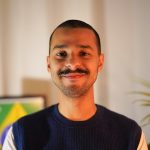
Tarcisio Cataldi
HQ, Studio Designer
Concordia University
Tarcisio Cataldi is a Black Brazilian designer and artist based in Tio’tia:ke/Montreal. He holds a Bachelor’s Degree in Graphic Design and is a second-year MDes student at Concordia University. Being committed to Black-driven narratives with the lens of Afrofuturism, his research practice is concerned with the design and construction of flags, in particular, their symbolic meanings and values, and their materiality and relation to humans and culture. He currently works as a designer for Obx Laboratory for Experimental New Media, Aboriginal Territories in Cyberspace and Abundant Intelligences Research Program at the Indigenous Futures Research Centre.

Yoshua Bengio
Co-investigator
Université de Montréal
Recognized worldwide as one of the leading experts in artificial intelligence, Yoshua Bengio is most known for his pioneering work in deep learning, earning him the 2018 A.M. Turing Award, “the Nobel Prize of Computing,” with Geoffrey Hinton and Yann LeCun.
He is a Full Professor at Université de Montréal, and the Founder and Scientific Director of Mila – Quebec AI Institute. He co-directs the CIFAR Learning in Machines & Brains program as Senior Fellow and acts as Scientific Director of IVADO.
In 2018, he collected the largest number of new citations in the world for a computer scientist and in 2019 was awarded the prestigious Killam Prize. Since 2022 he has the largest h-index impact factor in computer science, worldwide. He is a Fellow of both the Royal Society of London and Canada and Officer of the Order of Canada.
Concerned about the social impact of AI and the objective that AI benefits all, he actively contributed to the Montreal Declaration for the Responsible Development of Artificial Intelligence.
(OC FRS FRSC) is the 2019 Turing Award co-winner; Prof. at U de Montreal (UdM); Founder, Scientific Director, and CIFAR AI Chair at Mila Quebec AI Institute; and Scientific Director of IVADO Institut de valorisation des données. He will contribute foundational expertise in Deep Learning (DL).
